College... Where do you start?
Lets first talk about different types of Colleges
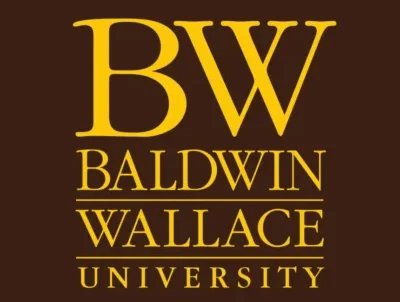
Independent College's
Independent colleges are private institutions that operate without direct state government control. They often offer smaller class sizes and cost more due to the more personalized education. This type of institution includes subtypes of colleges with specialized demographics like HBCU's.
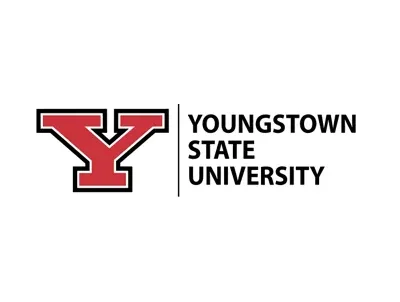
State Universities
State universities are public institutions funded in part by state taxes and serve as a part of the larger state university system, because of this they offer one of the lowest tuition costs for in-state students. They are typically large institutions that offer a broad spectrum of academic choices.

Community College
Community colleges are low cost public institutions and can be synonymous with regional colleges. They offer less classes than a main campus state university but the overall cost is even less. Mixing classes from a main campus state university and a community college is a great way to decrease the cost of a degree.
How do I prepare for college?
Schedule a Meeting:
Free SAT/ACT prep courses:
FAFSA Application:
Scholarship Hubs:
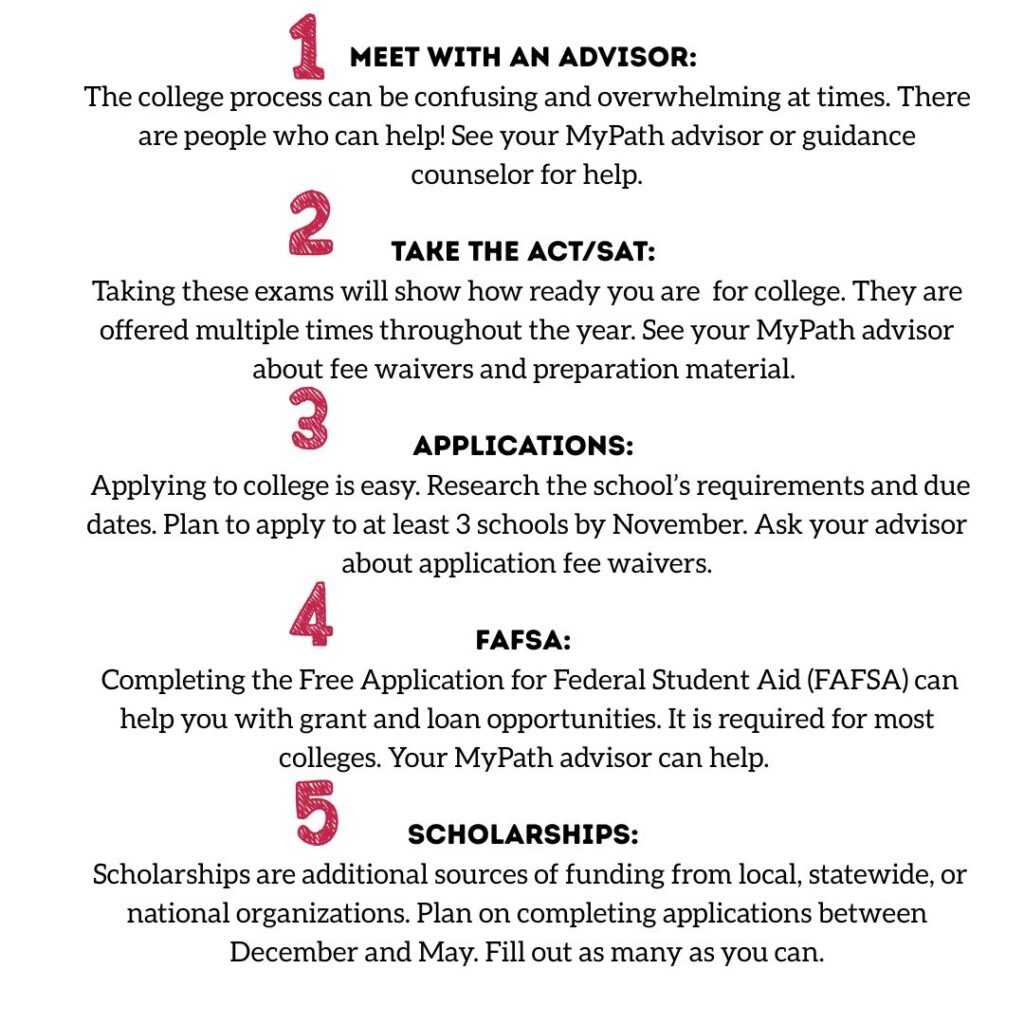
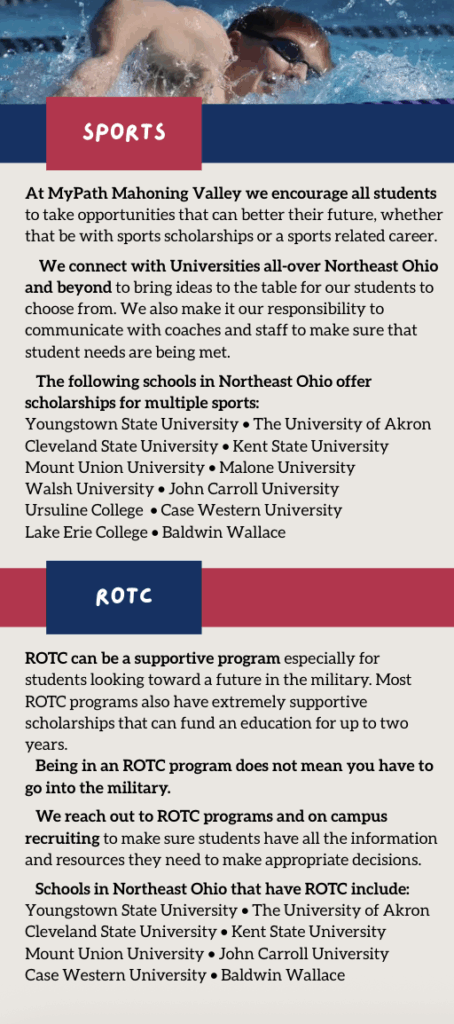
Other sources of Scholarships
Sports scholarships and ROTC scholarships are great sources of funding for your college education.
Most campus’ will have recruiters or specialized onboarding programs for these scholarships. Always take time to reach out to these facilities at your college of interest to ask about their opportunities.
Understand What an ROTC Scholarship Contract Is
How Much Will College Cost?
Here is an estimated breakdown for each schools 2026 cost per year – you can usually find these numbers on the chosen institutions website under “Cost at a Glance”
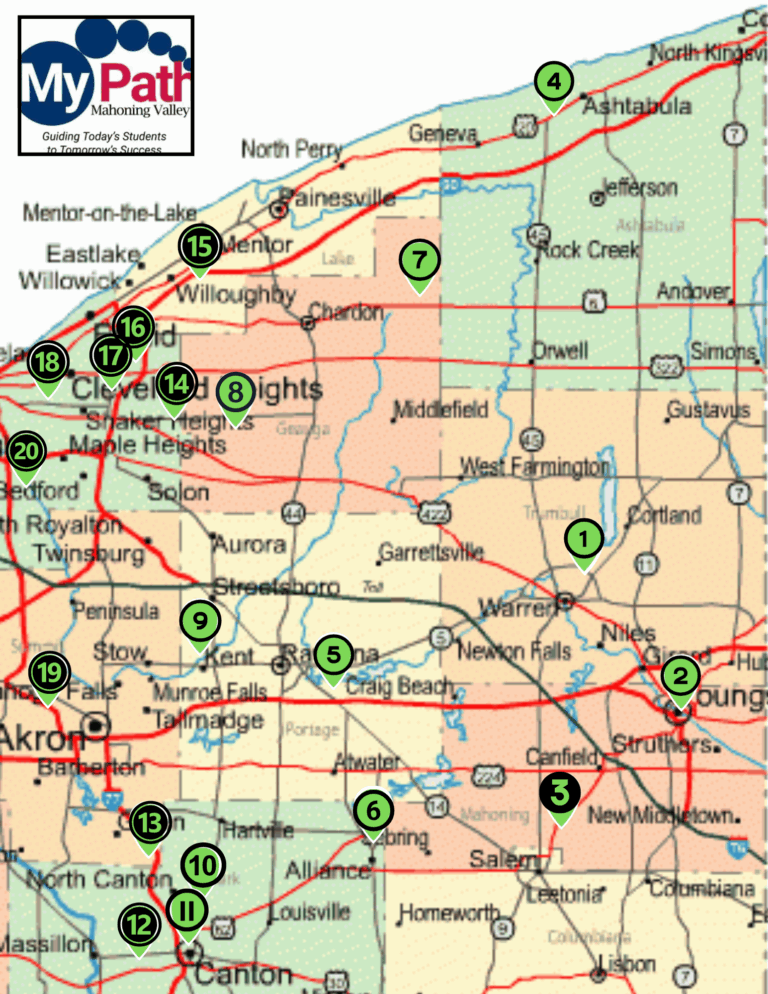
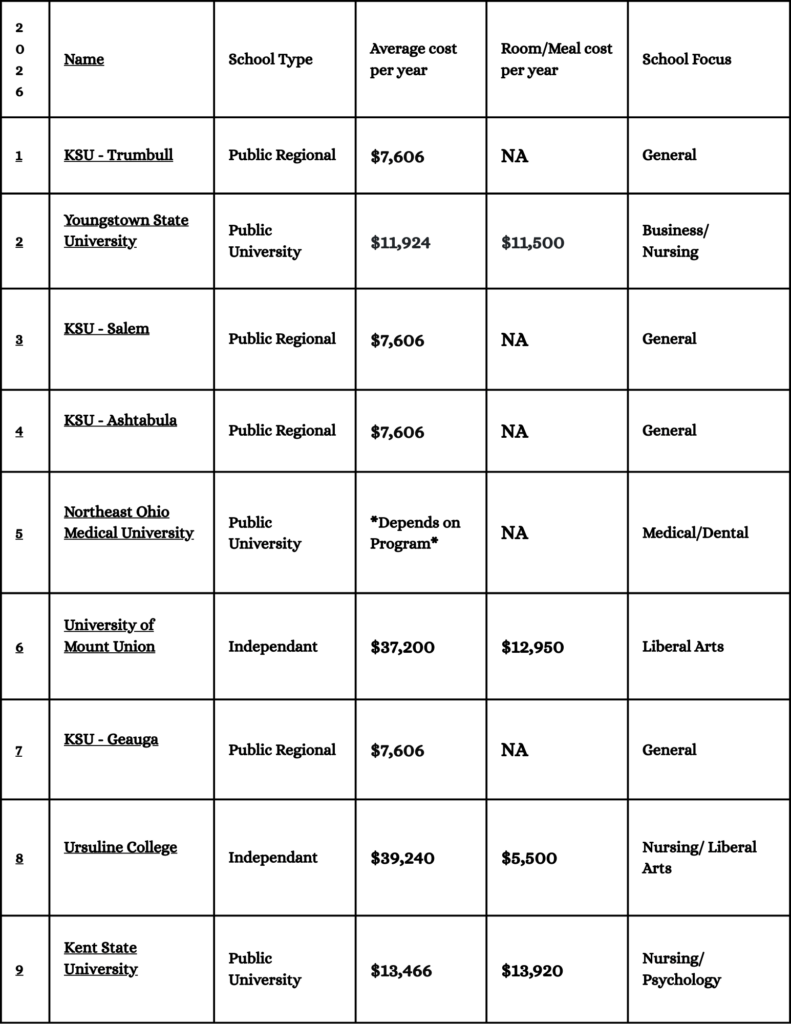

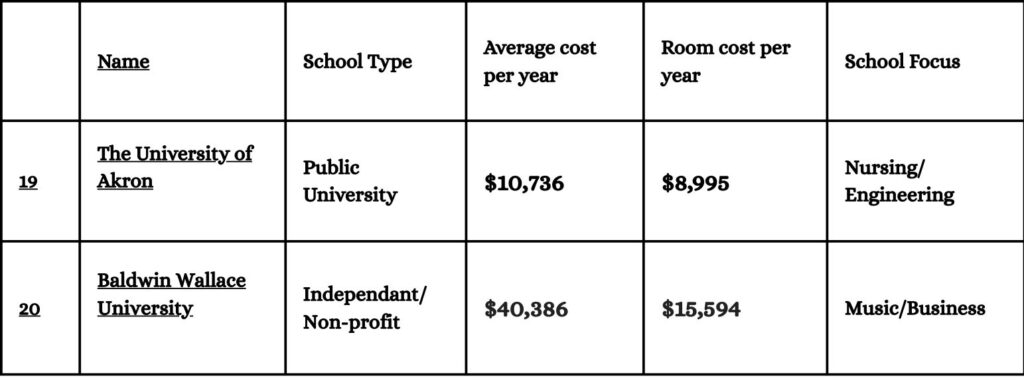
How do I calculate my overall cost and budget for college?
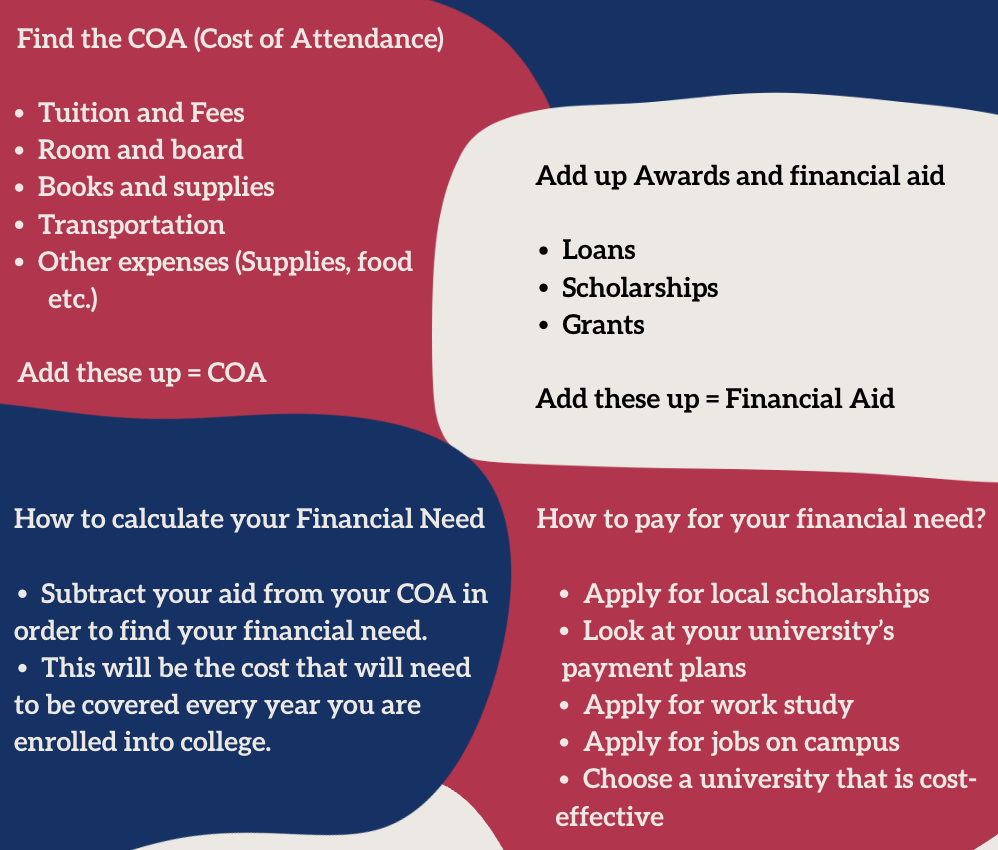
Other resources for college information
Cost isn’t the only important factor when picking a school. Now that you have the tools to find your cost of attendance, you can narrow your choices based on other information, such as, demographics, graduation rates, placement rates, or campus resources. Below are some resources to find specific information on your potential colleges.
